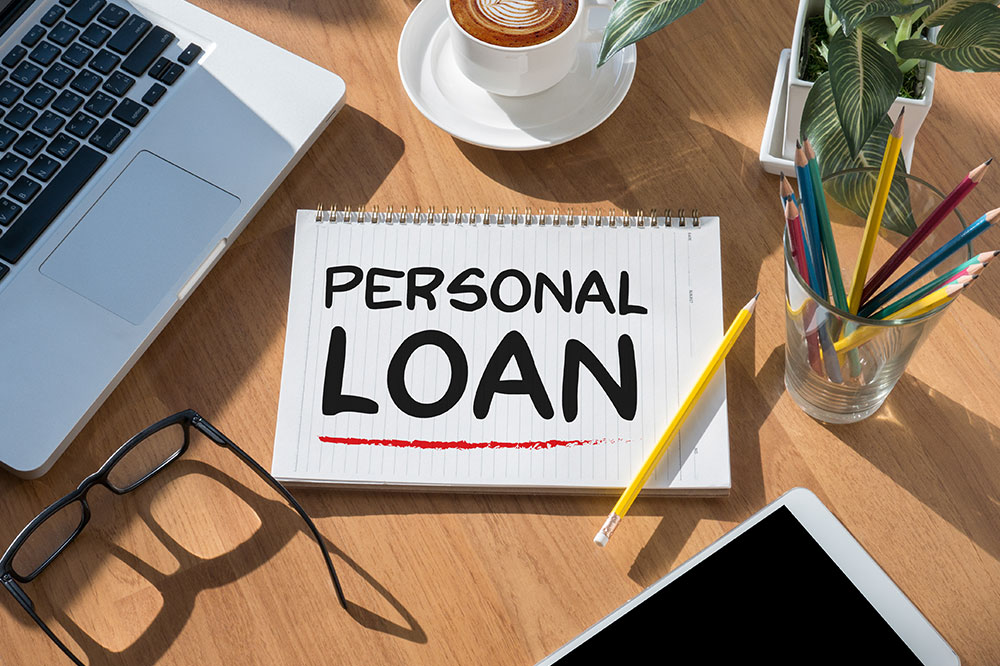9 ways to get a personal loan with bad credit

The term “bad credit score” can be quantified in many ways. For example, as per FICO ratings, a score of below 670 is considered poor. Likewise, VantageScore has its threshold at 661. A bad credit score greatly reduces an individual’s chances of getting loans from banks and other financial institutions. Nevertheless, there are certain borrowing avenues and ways to get personal loans with bad credit scores. Some of those useful options include:
Make soft-credit inquiries
This avenue is known as seeking prequalified loans from banks. Several lenders allow customers to submit prequalification online to let them see their estimated loan offers without affecting their credit scores. Soft-credit inquiries are effective for receiving a pre-approved loan from banks and other financial institutions that lend money to individuals. This process involves discussions with several potential lenders to assess one’s loan options. One must avoid making hard credit inquiries (loan inquiries in which lenders request to review the loan seeker’s credit report, as opposed to soft-credit inquiries that only involve talks), as that can further lower one’s credit score.
Keeping personal identification handy
Before agreeing to sanction loans for individuals, banks need them to reproduce their personal documents, including their social security number ID, driver’s license, W-2 forms from the previous two years, two most recent bank statements from all accounts, recent utility bills, mortgage statements, pay stubs, federal tax returns of the last two years, and other documents that verify one’s residential address, personal loan information, and overall contact details. Keeping such documents on hand makes the process of KYC (know your customer) much quicker, and so does the process of getting a loan.
Negotiating an agreement with one’s bank
This option only works for long-time customers of a bank. Essentially, if a person has had a good credit record with a given bank (except for some recent repayment issues), they can negotiate an agreement in which the bank provides a bad credit loan to them on a short-term basis.
There is no guarantee that all banks will be generous regarding such loans. Additionally, the loan amount will not be very high, given the recent credit history of the loan seeker. Nevertheless, it is always worth a try for loyal customers of banks to receive loans from them based on their relationship.
Going for a cash advance
As the name implies, cash advances are a way to get quick money to keep daily work or livelihoods going for individuals. If a person owns a credit card, they get a credit card line. A cash advance is a loan people with bad credit scores can opt for using this credit card line. However, a cash advance is highly risky as it is usually accompanied by massive interest rates. So, taking this route may seem like piling on the problems from a creditworthiness standpoint. However, cash advances are among the fastest options if someone desperately needs money to salvage an emergency.
Seeking payday loans
Speaking of risky loans, perhaps none of the others come close to payday loans. This is often the last option people choose if they need money quickly. These loans are also known as “predatory loans” that come with huge repayment interest rates. It is not uncommon for a lender to slap a 400% interest rate on their payday loan and expect the receiver to repay it completely within a two-week payback period.
Generally, financial experts do not advise individuals to go for payday loans. However, like cash advances, this is a quick monetary option for individuals who have exhausted all their other avenues of receiving credit. Such people will reluctantly go for these loans, knowing that a failure to repay them will seriously damage their credit score for good.
Opting for a cosigner
A cosigner is an individual with an excellent credit score who agrees to take on the credit risk of individuals with bad credit history when the latter apply for a loan. Having a cosigner onboard enables individuals to increase their chances of getting loans with reasonable interest rates and other favorable terms. Normally, cosigners are close to the borrowers; they can either be their close friends or family members.
The obvious downside to this option is the relationship between the borrower and the cosigner. If the borrower defaults on their repayments, the cosigner must do so from their own pocket. This can seriously hamper the chances of individuals getting the cosigner’s unconditional support for future borrowings.
Going for peer-to-peer lending
A peer-to-peer (P2P) loan is an alternative option for people with bad credit scores to receive money without a credit union or bank. Essentially, investors and individuals with extra money act as lenders in this loan. For borrowers, this is a good option to get a quick loan with reasonable interest rates and, more importantly, a shot at restoring their creditworthiness in the long term.
Checking out secured loans
A secured loan involves collateral for the borrower. So, while giving out these loans, banks make the borrower pledge their assets (house, car, personal belongings, property) to cover their credit risk. So, if a person takes a secured loan and pledges their house with it, the bank confiscates the property if the loan is not repaid on time.
While secured loans are risky, they offer arguably the greatest incentive to borrowers to repay the taken money on time and gradually improve their credit score. Several businesses opt for secured loans and keep their fixed assets as collateral for the worst-case scenario.
Taking a loan from family or friends
This is perhaps the simplest option. If one’s close or distant relatives or friends are rich, they can afford to offer a loan to them in exchange for a fixed or variable repayment interest rate. The best part about this loan is its flexibility. Family members or friends tend to be lenient when it comes to receiving back the money they lent to the borrower. However, borrowers must refrain from exploiting this lenience and default on their repayments regularly.







